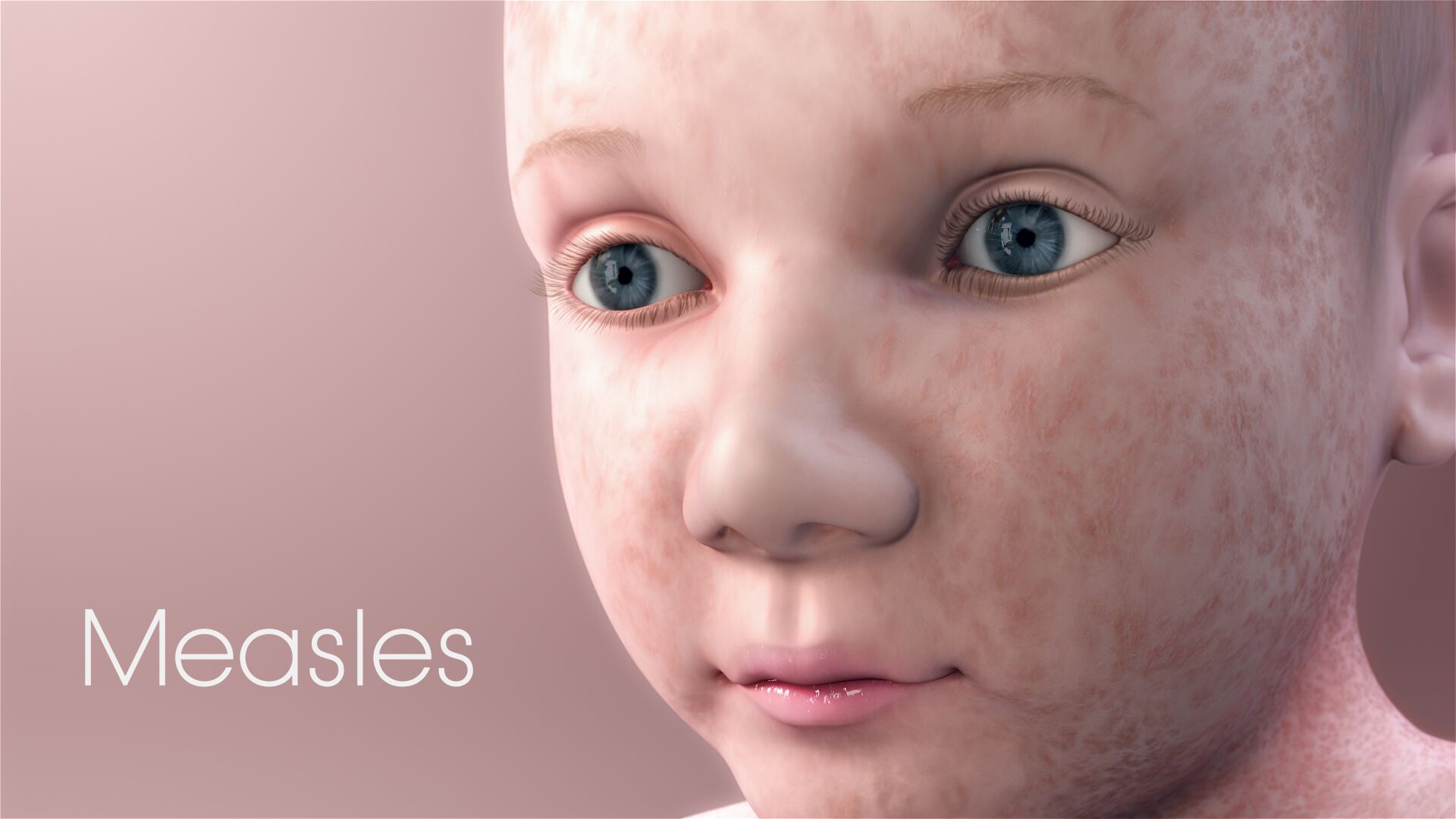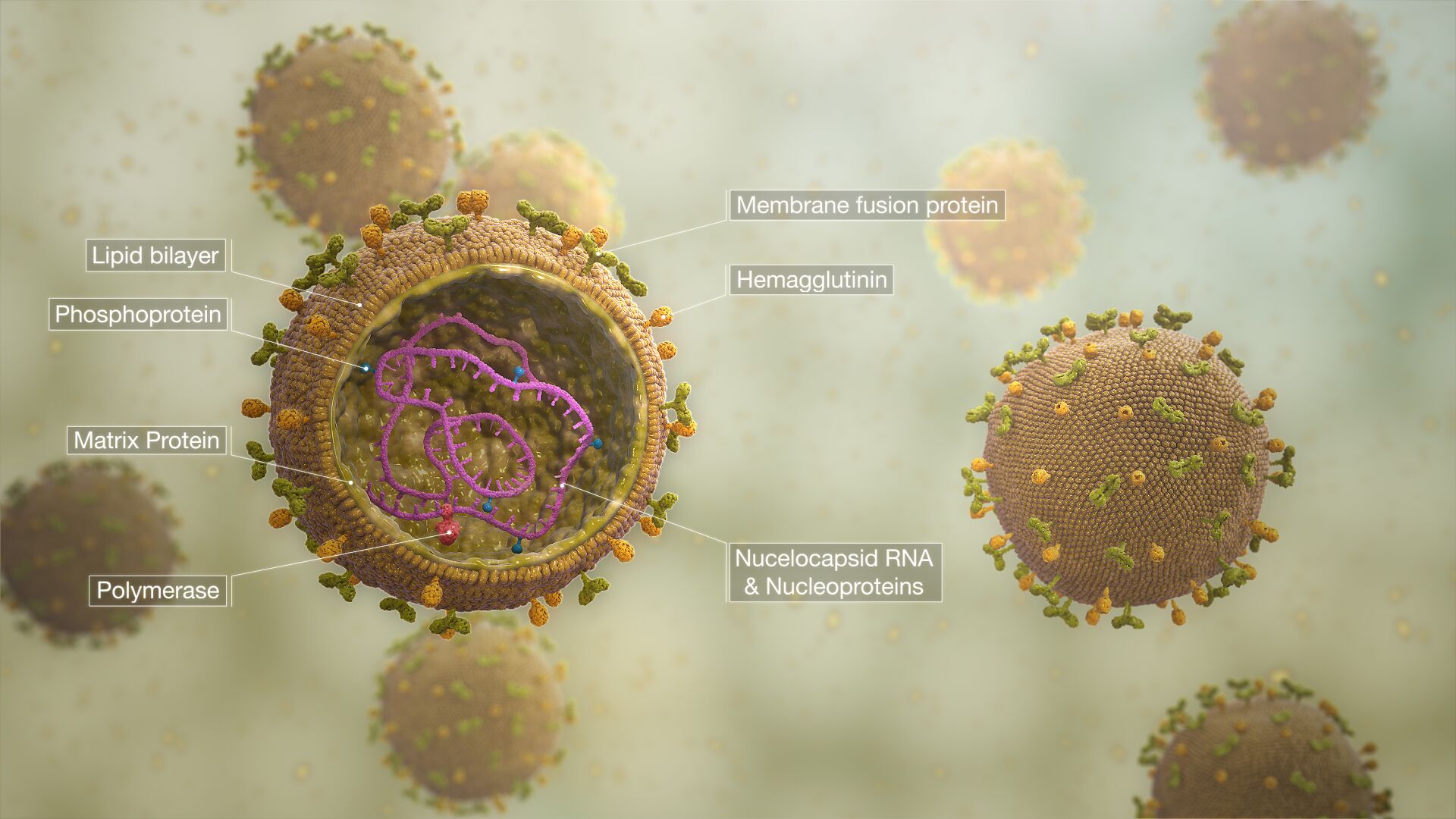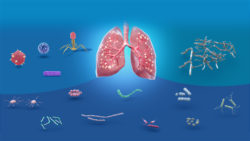
There are two types of measles:
- Measles: This is the standard form caused by the rubeola virus.
- German measles: This is caused by the rubella virus and is comparatively less severe. Unborn children are at a higher risk of contraction than young children.
Standard measles or simply measles, is a contagious, airborne, viral infection characterized by a red rash that starts on the face and spreads to the rest of the body 3-5 days post the above symptoms appear. Temporary white spots appear inside the mouth, along with fever, cough and swollen eyes. Measles affects about 20 million people a year, primarily in the developing areas of Asia and Africa.
Cause and Transmission

Measles virus is a single-stranded, enveloped, RNA virus. It can spread through contact with infected secretions (mucus or saliva) within 2 hours of release. Vitamin A deficiency is also known to be a risk factor for measles among children.
Pathophysiology
Measles virus infects the epithelial cells of the respiratory system. Hemagglutinin or H-protein, present on the surface of the virus, helps in binding with the host cell. Once bound, the fusion protein (F-protein) lets the virus fuse with and enter into the host’s cell membrane. The viral proteins produced inside the cell are sent out as a newly made virus, allowing the virus spread from the lungs to the lymph nodes, intestines and brain.
Prevention and Treatment
Immunization against measles has brought down infection rates in the U.S. but the vaccine still needs work. The measles vaccine, part of the MMR vaccine, offers protection from measles, mumps, and rubella (German measles).
Once a person has become infected, no specific treatment is available; only supportive care may improve outcomes. There is no prescription medicine, however, acetaminophen is often used to relieve fever and muscle aches. Vitamin A supplements are also recommended in the developing world.
A typical feature of this disease is that a person only acquires it once. The immunity acquired during infection is typically for life.

Pneumonia
Pneumonia is an inflammatory condition of the lung (pneumonitis) and the leading cause of death of children under 5 years old worldwide. Read More..








